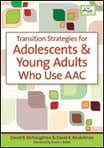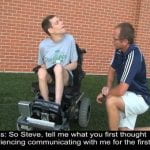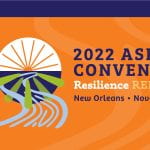This website provides guidelines for teaching literacy skills to learners with special needs, especially learners with complex communication needs (CCN) such as autism spectrum disorders, cerebral palsy, Down syndrome, developmental apraxia, multiple disabilities. This website provides information on: What skills to teach How to teach these skills Videotaped examples of instruction with learners […]
Employment and individuals who use AAC – Webcast
Employment is a key issue in the lives of many individuals who use augmentative and alternative communication (AAC). In this free webcast, David McNaughton and Anthony Arnold share research findings on key supports to employment for individuals who use AAC, and describe the employment success stories of a variety of individuals who use AAC.
Health transitions for youth with complex communication needs – publication
As adults, individuals with CCN are responsible for describing their health needs, scheduling services, and self-advocating with health care specialists so they can access habilitation and rehabilitation services and technologies and have their health concerns addressed. (Full text available)
Transition strategies for adolescents and young adults who use AAC – Publication
This edited text provides strategies for supporting successful transitions to adult life for individuals who use AAC. The book includes a series of chapters on common goals for individuals who require AAC – many of the chapters are co-written by individuals with complex communication needs.
Building relationships through the tools of communication
Klein, C. & McNaughton, D. (2010). Building relationships through the tools of communication. Online video at http://www.youtube.com/watch?v=dupabkw46Qk Chris Klein is a graduate of Hope College, and is the driving force for Clay Vessel Inc (http://www.clayvesselinc.org ), a not-for-profit resource for assistive technology. Chris was born with cerebral palsy, and uses augmentative communication to help support his […]



